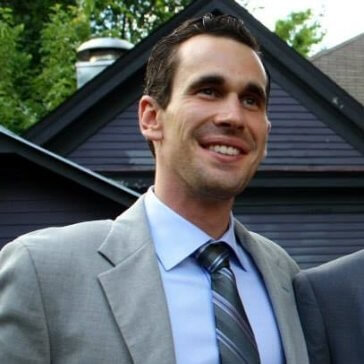Let’s continue our story about work and talk about the future of work.
It’s been quite amazing to pick the brains of some of the most brilliant minds of today about the way we work and sum up all the changes we’ve gone through in the past several years.
If you’re interested in knowing more about the state of work today, you can check out the first part of this expert round-up, where experts share their views on the current state of work.
In this second part of the expert round-up, as we continue our state-of-work adventure, we’ll cover the following:
- Do employers and employees share views about the future of work?
- What business trends will we be enjoying in our (near) future?
Let’s begin.
Do employers and employees share views about the future of work?
The pandemic has shown us that employers and employees have different views of all things related to work.
A lot of the debate has been focused on the benefits and challenges of different remote work models — and not everyone is on the same page on this one.
In this section of this expert round-up, I wanted to further discuss the gap — or the lack of it — between what employers and employees want the future of work to be.
Some employers want to go back to the way it was
Why do some employers want everything to go back to the way it was before the pandemic?
Well, for Nadia Harris, the Founder of remoteworkadvocate.com, this seemed like a tricky question — she believes that most employers just want things back to the way they were for no apparent reason:

“Many employers want people to ‘go back’ just because it’s ‘always been that way’. No solid justification rather than staying in their comfort zones and schemes that have been present on global employment markets for a long time.”
Moreover, Dr. Daniel Wheatley, Associate Professor in Business and Labour Economics at the University of Birmingham, argues the following:

“What employers look for in a workplace is highly dependent on their philosophy and work culture.”
In other words, come people are interested in keeping control over their employees:

“Employers wedded to traditional routines of work will desire the workplace to involve co-locating employees — in such a way that time and effort they afford to work can be monitored, and leaders can retain a high level of control over employee routines.”
Some believe no workplace model will be the norm
For Bill Catlette, Partner at Contented Cow Partners, one thing is clear — there is no longer an employer workplace model that represents the norm. He explains how we got here:

“For many, the office model remains in doubt because of the lingering effects of COVID, and a talent market where, for the time being, workers have unprecedented bargaining power owing to skill shortages.”
Although he believes that hybrid work models are gaining popularity, he says that many leaders don’t know how to manage hybrid teams:

“Depending on the industry and the type of work being done, hybrids seem to enjoy a dominant position. That said, there are a number of companies and industries captained largely by “graybeards” where the aging management model wants all the chickens back in the coop full-time, if only because that’s the only way they know how to manage.”
Some employers are focused on employee retention
Vice President of Marketing at Motivosity, Logan Mallory, argues that employee retention remains the top focus for many businesses:

“Employers WANT to create a workplace that’s compelling — and most want to be a great employer.”
However, he also acknowledges that problems arise because employers manage different types of people — and then try to accommodate everyone:

“[Their] team members have different life needs, different preferences, different work histories, and different personalities. An employer can’t possibly accommodate every need and every want.”
Mallory adds that employees have to be more understanding of these limitations on the part of their employers:

“Employees need to understand that employers have limitations on resources (expertise, time, money). There are certain workplace circumstances that SHOULD be adhered to (inclusion, safety, integrity, etc.) — but that doesn’t mean they can provide the workplace that each team member sees as the dream situation.”
Ultimately, for Mallory, employers and employees should be on the same page goal-wise:

“At the end of the day, however, employees and employers do have the same end goal: to have an enjoyable work experience, one that they look forward to and thoroughly enjoy. It is also about what both sides can bring to the table to meet that goal.”
Some believe employers should focus on “user experience”
Although she believes that many employers want to go back to as things were, Harris says there are also employers who understand the need to change and challenge their workplaces. Yet, this can be a bit tricky, she elaborates:

“Some propose connecting the office with work-from-home elements, to create a win-win solution for both sides. Well, this won’t work in my opinion, as hybrid work isn’t about connecting the “old normal” with the “new normal” — but creating a scalable employee experience that embraces flexibility, human connections, and productivity.”
In her recent book, How to tackle hybrid working, Harris explains a unique point of view — companies should be approached as websites and should be focusing more on user experience:

“This is everything, really. There’s a big need to focus on intrinsic motivation rather than just incentives for employees. I think that, these days, people look for authenticity and a possibility to connect their lifestyle and what they believe in with a working environment that enables them to thrive.”
Some think employers are still figuring things out
When I asked Jossie Haines, CEO and Founder of Jossie Haines Consulting, about her views on the future of work, she said that many employers are still in the process of working things out:

“Employers are trying to figure out which trends are here to stay and work for the type of business they are building. For some companies, for example, if you work on hardware, you need some of your employees to come to the office daily to use the physical tools they can’t take home. Employers are looking for some stability in the current uncertainty.”
Some employers and employees are aligned in their needs and desires
For Art Shaikh, Founder & CEO of CircleIt, and his team, the needs and desires are aligned. He explains what this means in practice:

“Luckily for us, we are a mission-based company, so there is a lot of alignment on what the team and I see as vital to a successful working environment. I want to ensure that my team has what they need to be successful in work and in their personal lives, so I don’t have the same friction some leaders experience in these matters. From day one, I made sure to provide top-tier healthcare and a hybrid work environment, in addition to significant equity packages.”
Another one of our experts, Nate Martin, The Co-Founder & CEO of Puzzle Break, thinks that many employers are devoted to doing the right thing for their employees:

“Employees are seeking remote arrangements at unprecedented rates, and for good reason. Who wants an onerous commute if you can avoid it? I’m happy to see that *most* employers are doing the right thing as they seek the right fit for their culture.”
Some think matching all expectations is the winning combination
Team Culture Facilitator and Consultant, Giorgia Savic, also believes that matching the expectations of employers and employees is the winning combination for a sustainable business.
How can this be achieved?

“It requires open and constant communication and a psychologically safe environment. Certain reports, like the one of McKinsey and Company from 2021, have shown that employees were quitting because managers didn’t actually know what employees wanted. We can change this. Let’s remind ourselves that different generations have different expectations of the workplace.”
In harmony with Savic’s perspective, Jackie Leavitt, Editor In Chief at Cloudwards, explains that, in many cases, what employers want and what employees want can overlap.
In any case, there always has to be employee trust and support:

“Employers are looking to be more efficient and to make progress. Employees are looking for professional growth opportunities, but also a balance of work-life — while also making a decent wage. I do think these two things can overlap if employers develop good systems and set expectations, while trusting employees to do their work.”
Some believe employers and employees should be part of the “same equation”
For Valentina Thörner, Independent consultant at RemoteThatWorks, what employers and employees want translates to a simple math equation:

“Employers want to get the job done, sell their services, get customers, serve these customers, and make money. Employees are a resource within this equation — and, depending on how much value these employees create, the company can reinvest more or less into the maintenance of these employees.”
However, she also thinks that, for some companies, feasibility is a factor that dictates the way they treat their employees:

“Basically, a company will pay a salary they can afford and the perks they can afford up to the moment when it’s not feasible anymore. If someone else can do the same job at the same quality for less money — they’ll hire that person. If someone else can do the same job for the same money but with higher quality or reliability, they’ll hire *that* person.”
Employers should focus more on truly listening to what their employees need — because, in most cases, it’s not only about the money, Thörner argues:

“From an employee’s point of view, they want a fair salary and a work environment they don’t hate. Psychological safety, good relations with their boss and their colleagues, and flexibility, IN COMBINATION WITH FAIR PAY, are the highest predictors of employee loyalty.”
Some employers are just starting to see the many benefits of flexibility
As Marisa Eikenberry, Web Developer at The Kevin Eikenberry Group and Long-Distance Worklife Podcast Co-host, sees it, some employers are just starting to realize the overall benefits of flexibility. And, once they finally do realize the benefits — they’ll probably keep remote work as one of their options.
She explains this a bit further:

“I think some employers and employees are on the same page and looking for the same things — but not everyone. We’ve definitely seen the headlines of big names completely trashing the idea of remote work. (Never mind the fact that even some of them have benefited from remote work in the past.)
But some companies are definitely seeing the value of flexibility — and, if their sales numbers and productivity numbers haven’t dropped over this remote period, I think it’s easier for them to consider keeping remote work as an option. Either in a hybrid kind of way or for some companies, permanently.”
The founder of Spread Great Ideas and CallerSmart, Brian David Crane, believes that WFH (as in ‘work from home’) or hybrid work structure was never a possible reality 3 or 4 years ago. He also believes that COVID-19 changed all that:

“Employers and employees had to evolve rapidly, and change — although that might have been uncomfortable initially — has provided excellent returns. Some advantages employers and employees have benefitted from include:
– Excellent mental and physical health,
– Cost savings,
– Improved productivity,
– Choice of location,
– Time savings, and
– Greater work-life balance.
These are the elements both employers and employees now expect from a workplace.”
Some think understanding and trust are key for both employees and employers
From the point of view of Jordan Carroll, Founder of The Remote Job Club and The Remote Job Coach, even though some employers and employees don’t strive for the same things work-wise, they can find common ground if they choose to understand each other:

“Employers are looking for productive employees and output.
Employees are looking for flexibility to be able to choose where to best be productive.
Ultimately, if both have this understanding, they will work toward the same things in the future of work — which is all about choice and freedom to choose.”
In terms of how understanding they are of the needs of their employees, Sally Clarke — Co-director of Human Leaders and Wellbeing and Burnout Researcher and Expert — divides companies into future-thinking and archaic:

“Future-thinking employers are looking for ways of creating an ongoing, healthy relationship with their people.
Employees are looking for commitment, transparency, and flexibility in their workplace. We all want to feel like we are using our time and energy — these precious resources we have in our short lives — effectively and meaningfully.
Future-thinking companies align with people on this point.
Archaic companies, which are clinging to the same old modalities, do not.”
For Giorgia Savic, trust is essential in any work environment. Employers and employees have to be partners in everything they do:

“To overcome trust issues, employers and employees should work toward co-creation — getting people to participate in the creation of team norms and processes will make them more accountable and engaged. Inclusion and collaboration are crucial components in this process.
If employers and employees don’t lean toward the same things, then the future of work is bleak.
We are talking about partnership.
Employers need to find a way to talk to people constantly and embody the team values — so that they attract the right talent who will have the right conditions to produce the desired results.”
Some believe employers have a hard time letting go of control
Eikenberry acknowledges that some employers might still be struggling to accept remote work due to the lack of control over their employees. She explains why she thinks this is happening:

“Employers are ultimately looking for their goals to be achieved. And some are feeling stressed — because the way they used to measure ‘success’ can’t be done in a remote environment. You can’t see people working away anymore (which still may have been presenteeism) or hear them getting on the phone to make a sales call.
For employers that got most of their social interactions in the office, remote stresses them out. It’s uncomfortable. And they’re struggling. So they may be trying to overcompensate by mandating office days.”
In harmony with Eikenberry, Savic thinks there is a discrepancy between what employees want and what employers want to give:

“In my surroundings, I noticed the following:
Employers look for competent people who can do the job on time, for the available pay. They want their business to produce results.
Employees look for companies where they can use their skills and actually do the job — without stressing themselves about their micromanaging boss or toxic work culture, or obsolete procedures. They want to make an impact with their work, and to feel respected and accepted.
So employers and employees basically want the same thing: to get the job done. It’s just that employees often want more autonomy and flexibility than employers are ready to give. There are some trust issues to overcome. Employees are afraid of being exploited if they go above and beyond; employers are afraid of being taken advantage of, so they have a hard time letting go of control.”
Some think the command and control mindset doesn’t work anymore
For many employers, working in an office was a great way to know what’s going on in their companies. This way, they would always be aware of what employees are doing, how they are doing it, and how much time they need to do it.
In a remote setting, the concept of traditional management has changed, making employers relearn how to oversee and measure teamwork from afar, Jim Kalbach, the Chief Evangelist at MURAL, argues:

“From an employer’s perspective, the ideal workplace is one that enhances team productivity, attracts a diverse roster of global talent, and contributes to staff retention. It should ultimately foster creativity and innovation that drives business outcomes.
But there’s a management problem in the new world of work — namely, how to oversee teamwork.
No longer is ‘management by walking around’ an option. Trust is key here, and a typical “command and control’ mindset doesn’t work well in remote and hybrid settings.
Instead, managers need to shift their attention to output — and, even better, to outcomes.“
Some believe employers need to adapt their premises
Wheatley says that a large evidence base shows that employees don’t want to be monitored and controlled.
So, what do they want?
Well, they want a flexible approach that helps them keep up with the diversity of their needs:

“A flexible approach is required to respond to the diverse needs of employees with respect to both the timing and location of work — with some employees showing preferences and/or need for:
– Work from home,
– Hybrid work, and
– Work taking place in a co-located workplace.
Employer premises need to adapt to new ways of working — including the more widespread application of hybrid and remote working routines — through the:
– Provision of collaborative spaces, and
– A focus on employees coming together at their workplace to share knowledge and provide professional and social networking opportunities. “
Some think employees want to be in control of their time and life
Eikenberry thinks employees are looking for flexibility:

“Many are learning how to structure their days to be more productive than they’ve ever been.
They might get away from their desk to take a quick walk at lunch or they can pet their dog in between calls.
They also might enjoy being home right when their kids get home.”
Eikenberry explains what being in control of her time and life meant for her:

“I enjoyed the flexibility of being able to be where I was needed from a family perspective, while still being able to do my job. I didn’t have to pick. And those that enjoy working outside of their home might pick a place nearby to work or a coworking space instead of coming into the office. We’re all learning what helps us truly thrive.”
Kalbach also believes that employees are looking for flexibility in where and when they work. He shares his two cents on why this might be:

“The Great Resignation clearly showed us that people want flexibility and control of their time — not so they can work better, but so that they can have the lifestyle they want.
People want to spend more time with their friends and families, they want to be healthier and enjoy the outdoors more, they want to avoid lengthy commutes, and they want to spend their time on more purposeful activities.”
Everyone wants money, results, impact, meaning, and purpose
Quite an upfront point of view comes from Lavinia Iosub, Managing Partner at Livit and Founder of Remote Skills Academy — in the end, everyone wants the same things.
How can that be?
Iosub explains:

“Employers are (or should be) primarily looking for results and impact — which is often providing a product or service that makes other people happier or better in some way.
Employees are looking for monetary (usually a salary that allows them to pay for their living expenses & everything else they need) and (at least some) non-monetary rewards: perks, belonging, self-actualization, meaning, contributing to something bigger than themselves, etc.
The public discourse often antagonizes these or speaks about what the company and what the employees want as if they were opposed. But if you ‘zoom-out’, they’re really the same thing.”
What’s that same thing we’re all striving for?

“Everyone wants money, results, impact, meaning, and purpose. The order of those priorities can be different, but they are not diametrically opposite. Ultimately, everyone wants to better their lives and the lives of those around them (a smaller or a larger circle).”
According to Iosub, it’s not that hard to satisfy both sides, you just have to be open and truly mean it:

“I default to an abundance mindset and generally believe everyone can get what they want if we have the openness and intention of looking for that win-win situation. If we only believe in zero-sum-games, well, then only one of these two “sides”, can “win” — which is bleak.”
What might change or stay the same in the future?
We might want it all (like the song by Queen implies) — but we might not be in the position to get it
With so many options and choices, it’s expected that we lean toward some work trends and completely disregard others.
The future of our work is closer than we think but what trends will be shaping it?
Let’s find out.
Some jobs will continue to be subsumed by digitalization
Catlette feels that certain jobs will keep being affected by digitalization. He explains:

“Hastened perhaps by the current skill shortage (or maybe merely a shortage of interest), many of our current jobs in hospitality, healthcare, and manufacturing will continue to be subsumed by digitalization.”
To show what this could look like in real life, he told a story about a friend and his cruising adventures:

“As a case in point, a friend and client who cruises frequently regaled me with stories of his experience with the robotic bartenders aboard Royal Caribbean cruise ships. Though the drinks were well-made, he noted that the robotic bartender didn’t know who he was (one of RC’s top cruisers), didn’t overpour, and had no jokes to share.”
Overall, Cattlete concludes:

“Based on the aforementioned digitalization, coupled with an aging nation, we can expect many of our healthcare jobs to be untethered, with far greater delivery in the patient’s home, either digitally or in person.”
Companies without a mission will have a hard time retaining employees
Shaikh expects some companies will have a hard time convincing people to go back to the office:

“I suspect we will continue to see problems with companies struggling to convince employees to return to the office full-time. I firmly believe that this will be the impetus for more companies opting for a 4-day workweek.”
Now, since more of Gen Z is slowly becoming part of the global workforce, companies that haven’t clearly defined and openly stated their mission won’t be able to keep their employees put:

“I also believe that as Gen Z becomes more entrenched in the workplace, you will start to see high turnover rates. More and more, companies that are not mission-driven are having a hard time retaining employees — because, at the end of the day, it’s just a job, indistinguishable from other jobs.”
High turnover will continue
Mallory warns that employees will be going after higher salaries. Not because they are greedy or unreasonable — but because they will need money to make ends meet.
If their expectations and wishes aren’t granted, companies will have to account for their resignations, Mallory explains:

“As salaries and salary expectations rise and inflation/interest rates/energy rates increase, I predict ongoing turnover and resignations as employees try to maximize their salaries. It’s not sustainable, so eventually, it will normalize, but we haven’t seen the end of it.”
In line with Mallory, Crane believes that employee turnover will increase, too:

“When location is no longer a factor, professionals will look at the global workplace as their playground. They will jump to companies with better work-life policies or benefits.”
Crane recommends that companies stay alert for possible signs of resignations and dissatisfaction to make their employees stay where they are:

“[Employees looking for better work-life policies or benefits] is also a sign that companies need to evolve and change to an employee-first mindset to maintain their competitiveness and stem talent turnover. Also, invest in your employees to keep them loyal and genuinely happy with the work policies.”
Ultimately, for this topic, Tamara Spasojevic, Talent Acquisition Manager at CAKE.com, concludes the following:

“Employers are looking for quality professionals who will fit into the company’s culture, quickly adapt to the team they are joining, and be dedicated to their work. A company that takes care of its employees is the one that tries to keep them satisfied and make them stay there as long as possible.”
Workplace perks won’t affect employee retention
Many believe that workplace perks and benefits (e.g. free lunches, gym memberships, or spa days) are what most employees are after and what keeps them loyal. Catherine Rymsha, Lecturer, Managerial Leadership & Leadership Processes at the University of Massachusetts Lowell, and Author of the book, “The Leadership Decision”, disagrees with this:

“There are plenty of organizations, services, and industries not offering any of these fads or perks — and, yet, these people still have to get up and go to work each day and are able to find purpose in what they do.”
She supports her claim with the example of healthcare workers — but, in essence, it may apply to any employee:

“Consider healthcare workers who can’t tend to patients while working from home. They do this because they care. And, while the corporate employee may have different responsibilities that can give them more flexibility, they still want to know that what they do makes a difference.”
So, employees aren’t after the perks — they want to make a difference regardless of what their job is.
Traditional, remote, and hybrid work will remain mainstream
According to Wheatley, employees will keep opting for different work models in the future, too:

“Evidence tells us that changes in work are gradual, with the exception of the noted dramatic shift to remote and hybrid working in the last two years. The future will see some employers remain wedded to traditional working routines, while others will embrace a more flexible and inclusive approach to work.”
He proposes that the success of each approach can only be learned with time — yet, based on current proof, two things will be defining work and organizations across the globe:

“If existing evidence is correct, then flexibility and employee well-being will come to define good work and successful organizations.”
Crane suggests that hybrid will turn into remote, allowing companies to choose from an ocean of global talent:

“I believe that the hybrid workstyle is here to stay as more and more companies jump onto the automation bandwagon, especially when it comes to businesses that depend more on technology. The hybrid work style will evolve into a remote work style, resulting in both employers and employees not being limited by boundaries anymore. Businesses can now hire from a global roster of talent, while professionals with the right skill sets can work for multinational companies from remote locations.”
There’s no getting away from remote work
Eikenberry is convinced remote work isn’t going away — but, neither will the people who question it:

“I expect we’re going to continue hearing, ‘When are these remote workers going to actually get back to actually working?’ for a LONG time. Many of us who were working remotely pre-2020 have heard this off and on anyway. Now that remote work is even more prevalent, it seems like there are more people around to criticize it.”
Carroll predicts that employees will keep thriving in remote work settings:

“Remote is the default! More companies will start completely distribute and the next frontier will be focusing on how asynchronous work styles and policies are implemented from day one. Not the remote on-accident stuff we’ve been seeing since the pandemic. It will be way more intentional. I anticipate the desire to be remote from employees will stay the same and grow!”
To add to this, Iosub says that “remote work” will simply become “work”, at some point:

“I believe a lot of companies will encourage and allow remote work, with various degrees of success and intentionality (spoiler alert: good remote work isn’t copying the office while working online). In many ways, remote work will become simply… work.”
Here’s how teams of the future may look, according to Iosub:

“We will see teams who might even be majority co-located, optimizing for remote-first so they can offer flexibility and plug in remote contributors where needed. We’ll see these teams gather once or twice a year in an ideally inspiring location to co-work, refresh and nurture the human connections in person, and then disperse again.”
Mental health and caring workplaces will become crucial
Crane is certain that companies will be tweaking their work policies to account for employee mental well-being:

“More and more firms will be engaging workplace policies that include mental wellness. This will include employee health days, mandatory leaves, vacation policies, and steps to improve individual productivity.”
On the other hand, Haines warns that employees have become distrustful of workplaces and organizations. They want to be part of companies that know how to make them feel good, valued, and happy:

“Employees are in an age where they don’t really trust workplaces — and in some ways, you can’t blame them. Look at all the rounds of layoffs happening right now in tech. A lot of companies are slashing employees to keep higher revenues — but where are the cuts in salaries at the exec level for deciding to overhire and mismanage in the first place? Employees are hungering for workplaces that care about the greater good — including employee wellbeing — and are focused on building inclusive and diverse workplaces.”
We will have to keep moving forward
Growth and progress are in everyone’s books, says Martin:

“We are going to continue marching forward. Remote will continue to grow. Hybrid is poised to explode. And critically, services that support these new trends will flourish. Puzzle Break is deploying remote and hybrid team-building solutions as quickly as we can, to meet the demand.”
The future will depend on what we’ve learned from the pandemic
According to Spasojevic, the pandemic has brought many changes — changes we can learn from in the future.
She explains:

“I believe that many companies will switch to a hybrid work model if it suits their business. Some companies have introduced working 4 days a week — but I think more and more companies will go that way if they realize that it’s productive for employees.”
As Savic sees it, the future of work will greatly depend on what we’ve learned from the pandemic experience:

“The pandemic proved that we can change anything once we are forced to, which pushed people either toward the mindset ‘I can’t wait for this thing to be over so I can go back to what it was before’, or toward the mindset ‘This is the reality, let’s see how we can make it work and what good will come out of it.’
And what have we learned from the pandemic experience?

“It turns out — people need no constant managerial control to do their job. We are capable of organizing our time and using our ways to get results. Now we have to prove that we will keep the trust that we have gained.”
The market will have a final say
Spasojevic believes the labor market is tough — there aren’t enough qualified professionals out there.

“The labor market provides fewer and fewer quality and professional people, so efforts should be made to find adequate employees and then keep them in the company.”
In addition to this, Savic argues that productivity will remain a focal point — but only under the circumstances dictated by the same labor market:

“Remote work will stay where it proved to be productive for the company and where it made work and collaboration easier to manage.
My prediction is: the market will have the final word, even if it might take a while.”
Who will make the cut, then?
Mostly those who chose to create a unique experience for their employees and customers over chasing profits:

“If happier and satisfied employees make satisfied customers (as proven by a large body of research), then those companies who’ve been investing in customer experience will survive AND thrive. They will attract more talent and be better at keeping it. They will have better ideas. On the other hand, things might go downhill for those companies that emphasize profits over employees’ needs. They might not survive at all. A natural selection of sorts.
Most importantly, with all the great changes that we’ve been making since 2020 (agile work, digitalization, more efficient processes), we have to keep implementing them so they can become permanent.”
Savic leaves us with a great question to consider:

“How can we prepare for the future if we keep wishing to go back to the past?”
Think about it.
The future of work is multimodal
From Kalbach’s point of view, successful teams in the future will be more fluid and allow us to switch modes easily:

“The nature of work has fundamentally changed due to the pandemic. Remote and work-from-anywhere are here to stay in some form and in some amount.
Successful teams will embrace a flexible mindset, one that moves fluidly from mode to mode with ease (e.g., all remote to hybrid, to in-person, and back). The future of work is multimodal.”
To help us envision how a multimodal future of work will look like, he lists potential key points both employees and employers will need to bear in mind:

“We’ll become more deliberate about building team connections and relationships in an ongoing way — and not just by doing trust falls once a year at team offsites.
Mental health will be a big part of that.
Policies and laws will struggle to keep up with the changing nature of work and work circumstances in the near term.
Organizations will prioritize teamwork and view collaboration as a strategic competitive advantage.“
On the other hand, Leavitt thinks the future will provide us with more innovative solutions:

“I predict that the future of work will involve much more remote work, hybrid work, and companies considering out-of-the-box solutions to draw the best talent while maintaining productivity levels — such as the 4-day workweek.”
Everyone needs to be clear on what they want and need
Thörner says that history works like a pendulum:

“There’s currently a lot of enthusiasm for fully remote, location-independent, maximum flexibility types of jobs. And there’s also a lot of energy going towards back-to-the-office, social connections, and ‘life as it was’. Both have their merits, and none will disappear.”
Both remote and in-office work will survive, she explains:

“Remote work and remote leadership require a lot of conscious decisions, it requires intent. Office work “feels” a bit easier, because a lot of those decisions are premade through habits that have developed over the past decades. Offices won’t go away, and they shouldn’t. And the same holds for remote work.”
The solution to this is that everyone is clear on what they need and want:

“My hope is that companies get clearer on what works for them — each one of them. And employees get clear on what they need. Because only then can we actually match the people who LOVE the office with companies who enjoy having an office, and the people who want (or have to) work from their homes with the companies who are set up for successful remote work.
More options is exactly what we need.”
Giving individuals the resources to thrive
Milan Tankosic, Customer Support Manager at CAKE.com, says that we have to consider several aspects when it comes to the future of work:

“How the work is done?
Who does the work?
When and where the work is done?”
Why is this important?
Because creating a personalized future in which everyone is given the resources to grow and make progress is simply a must, Tankosic suggests:

“People need to find a purpose in what they do. And, in the future, I believe that there should be opportunities for employees to grow, try different things, and feel supported. Learning and development teams will have a lot of work in providing this. The future of work should also consider personalized benefits and rewards that are important to an individual.”
Tankosic lists several examples that would work in practice, when it comes to personalization:

“People need to find a purpose in what they do. And, in the future, I believe that there should be opportunities for employees to grow, try different things, and feel supported. Learning and development teams will have a lot of work in providing this. The future of work should also consider personalized benefits and rewards that are important to an individual.”
Spasojevic also has a list of things employees might be interested in:

“For many people, the first thing is the salary, but also the benefits. I would highlight the way of working (remote, hybrid, on-site), flexible working hours, the number of days off per year, as well as private health insurance.”
Flexibility will allow people to pursue more than just work
Iosub believes that flexibility will benefit everyone:

“In many ways, the flexibility of the future of work will allow people more of a chance to be fully human, rather than just ‘workers’.”
This will be manifested in different ways, Isoub explains:

“We’ll see more flexibility in the types of employment offered and figuring out optimal setups. More and more companies, team members, and hiring managers will challenge the status quo of offering only the ‘default’ full-time, 9-to-5 permanent employment setup when hiring.”
The best part, though, will be the moment in which each employee is allowed to pursue their other interests and responsibilities, in addition to being full-time workers:

“We’ll start seeing a number of different combinations of types of schedules (full-time, part-time, fractional), terms (permanent, limited, project-based), and legal setups: employment, consulting, contractor, and freelancer. This will allow more people to take/keep jobs while pursuing other interests or commitments (parenthood, side hustles, caregiving, volunteering for causes they feel strongly about, etc.) which has immense benefits for both sides.”
More focus on tending to employee needs
The human-centered leader she is, Clarke thinks that satisfying employees’ needs will be a focal point in the (near) future:

“I think we will see an increasing shift in focus on what employees need. For the last few decades, the power balance in the relationship between employer and employee has been wildly disproportionately in favor of the employer.“
For Clarke, the future of work is fairer:

“The future will see this balance start to become fairer. This will happen at a grassroots level, where mindful start-ups and future-thinking companies offer employees a healthier, more sustainable work life. And also at a regulatory and legislative level, as the legal onus is placed on employers to prioritize the health and wellbeing of their people.“
Similarly to Clarke, Chris Dyer, International Keynote Speaker, Consultant, and Bestselling Author, argues that helping managers be better will also take up a lot of organizations’ time — mostly to create more functional workplaces for all:

“The best organizations will spend more time helping managers with the radical changes to how they should approach their job, based on so many external forces on the company. There will still be bad managers, terrible bosses, and toxic workplaces. That is never going away. But employees will have more and more choices in finding great teams and companies to join where they can find the right arrangement for them if they are willing to work hard, upskill their abilities, and expand their emotional intelligence.”
A complete shift will take a while
There’s still a lot to figure out about the future of our work, suggests Haines. A firm believer in remote work, Haines hopes to see more DEI (i.e. Diversity, Equity, and Inclusion) approaches in companies:

“My prediction is that work from home is here to stay. Companies will need to learn to adapt to the new norms and figure out what workplace strategies work for them. My hope is more companies realize DEI is not just a nice-to-have and that training their leaders on effective and fair management practices will not only help them create a more inclusive workplace but also produce better products that fulfill the needs of today’s diverse world.”
And, since many companies have become fully remote, they could also think about better resource allocation, Haines says:

“Cities need to figure out what to do with their 50% empty office buildings and potentially convert them into affordable housing instead.“
Harris’ prediction is straightforward — complete change will take some time:

“Well, my first prediction is that the shift towards new ways of working will take a while. I’ve recently researched how many years it took people to start using the light bulb since Thomas Edison discovered it… about 50 years! Bottom line: change takes time.”
Overall, there’s a lot to work on — but Harris believes good things will happen:

“I think many employment laws will keep their principles but international laws will be more open to global mobility among workers. Also, I am expecting an increase in countries introducing digital nomad visas. Basically, there’s a lot to work on within the legal & compliance perspective of remote work and I’m sure this will happen.“
The future of work in one word
The future of work is a lot of things — but could we sum it up with just one word?
Here’s what the people I interviewed said.
For starters, for some, the future of work isn’t fixed.
Catlette:

Changing.
Shaikh:

Changing.
Others feel that we will be enjoying more flexibility and ownership in the future, too.
Thörner:

Flexibility, ownership.
Wheatley:

Flexible.
Spasojevic:

Flexibility.
Eikenberry:

Flexibility.
Yet, since we’ve seen an amazing increase in the number of remote and asynchronous workplaces, many think this is what will define the future of our work.
Carroll:

Asynchronous.
Crane:

Remote.
Catlette and Shaikh said that the future of work is changing. How exactly?
Others seem to have the answer to that.
Martin:

Improved.
Mallory:

Accelerated.
Leavitt:

Adapting.
Dyer:

Mutating.
Haines:

Interrupted.
Tankosic:

Efficient.
Clarke:

Sustainable.
And, since we’re talking about a sustainable and efficient future, here’s what Rymsha’s one word is.

Purpose-driven.
In line with that, Iosub thinks the following.
Iosub:

Tailor-made. (No more one-size-fits-all).
With all this in mind, it doesn’t surprise that Harris and Kalbach have more to add to the story. For them, the future of work is represented in these two words.
Harris:

Opportunity.
Jim Kalbach:

Lifestyle.
What intrigued me the most was Savic’s word (more a sentence) she used to describe the future of work.
Savic:

The future of work is… Now.
Final thoughts
It’s been amazingly rewarding and eye-opening to go through all these expert insights and bring them closer to you.
I’ve found it both intriguing and expected that there’s so little focus on traditional work models and conventional approaches to work overall.
As a remote worker myself, I agree with everything outlined in this entire expert round-up.
I also hope that most (if not all) predictions will come true — particularly those pertaining to a more inclusive, more caring, and more human-centered work future.
I’m sure that the benefits will outweigh the challenges both for employers and employees.
All we can do now is wait.
But while we do, take a moment to think about the future of work. What word would you use to describe it?
